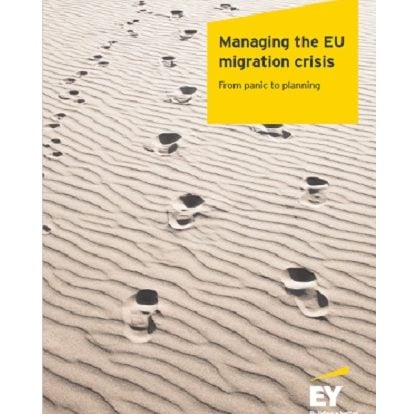‘Evolution takes time’: Five minutes with Iliya Nickelt of Germany’s economic development ministry

This interview with Iliya Nickelt, chief data scientist at the German Federal Ministry for Economic Cooperation and Development, is part of a ‘Five minutes’ series featuring speakers from Public Service Data.AI, taking place in London on 18 September 2025.
In it, he tells GGF what he’d like to see AI doing in 25 years’ time, the success of the German government’s data and AI labs, and who he’d invite to his dream dinner party – with a bit of “British humour” mixed in.
What are you most interested in discussing at Public Service Data.AI 2025?
The difference between the classic and relational perspective on data, and the new information-focused, contextual methods with AI language models – and how to bring the two worlds closer together.
Where do you think better use of data and AI in government will have the biggest impact?
Responsiveness and swiftness. Also, quality, I hope.
What drew you to a career in the public sector?
I was honestly concerned that my government was not performing so well in the digital domain. That was some time ago… which might raise the question of what I have been doing!
What more do you want to achieve before you retire?
I would love to participate in creating a transparent and trustworthy public AI.
Nickelt will be a panellist in the session ‘Opening up about data and AI to build trust’ at Public Service Data.AI, alongside Sue Bateman, chief data officer at the UK Department for Environment, Food and Rural Affairs; Dr Amanda Svensson, deputy director of applied data & insight at the UK Government Communication Service; and Martin Waudby, chief data officer at the London Borough of Camden.
Find out more and register for PSD.AI here.
What advice would you give someone starting out in the public sector?
Evolution takes time. Find people with your mindset, exchange ideas, and never forget your goals.
How might the public sector be different in 25 years’ time?
By 2050? I expect my personal AI assistant to connect with the public AIs on my behalf and quietly resolve all issues, while I focus on more interesting activities.
Are there any projects or innovations in Germany that might be valuable to your peers overseas?
I consider the concept of the German data and AI labs in every ministry to be quite a successful experiment. We are (so far) funded by the European Union independently of normal budgets, and with the primary goal of building data infrastructure and competence.
Which three famous people would you most like to invite to a dinner party?
‘You can answer these questions in a few minutes’, GGF said. Yet here we are!
This is a challenging question. Richard Feynman, definitely. Archimedes, I suppose, to talk about the difficulties faced by nerds in his time. And I would ask Ada Lovelace, so that Archimedes opens up a bit.
If you didn’t do your current job, what would you do for work?
I would probably write and produce films for Netflix. At least I would wait for them to call me back, but it’d never happen.
What is your most treasured possession?
I have a printed CERN handout from early 1995 which explains ‘the Web, or W3’. I am quite proud that I have somehow kept this. At that time, the web was about as old as LLMs are today.
Public Service Data.AI
The Public Service Data.AI annual conference, held in London, will hear from leaders from across the UK government and wider public sector, as well as from other countries and international organisations, on how to improve the way data and AI are used in the public service.
Emran Mian, the new permanent secretary of the Department for Science, Innovation and Technology, will deliver the opening address.
Other speakers across the conference will include David Knott, the UK government’s chief technology officer; Lindsay Mason, chief data officer of the UK government; Ott Velsberg, chief government data officer of Estonia; Ming Tang, chief data and analytics officer at NHS England; and Dr Malkiat Thiarai, head of corporate information management and data protection officer, Birmingham City Council.
The event is free to attend for civil servants, public servants and those working in the wider public sector.


















